FlipMouse, Button Interface and Touchpad for Digital Autonomy and Independence
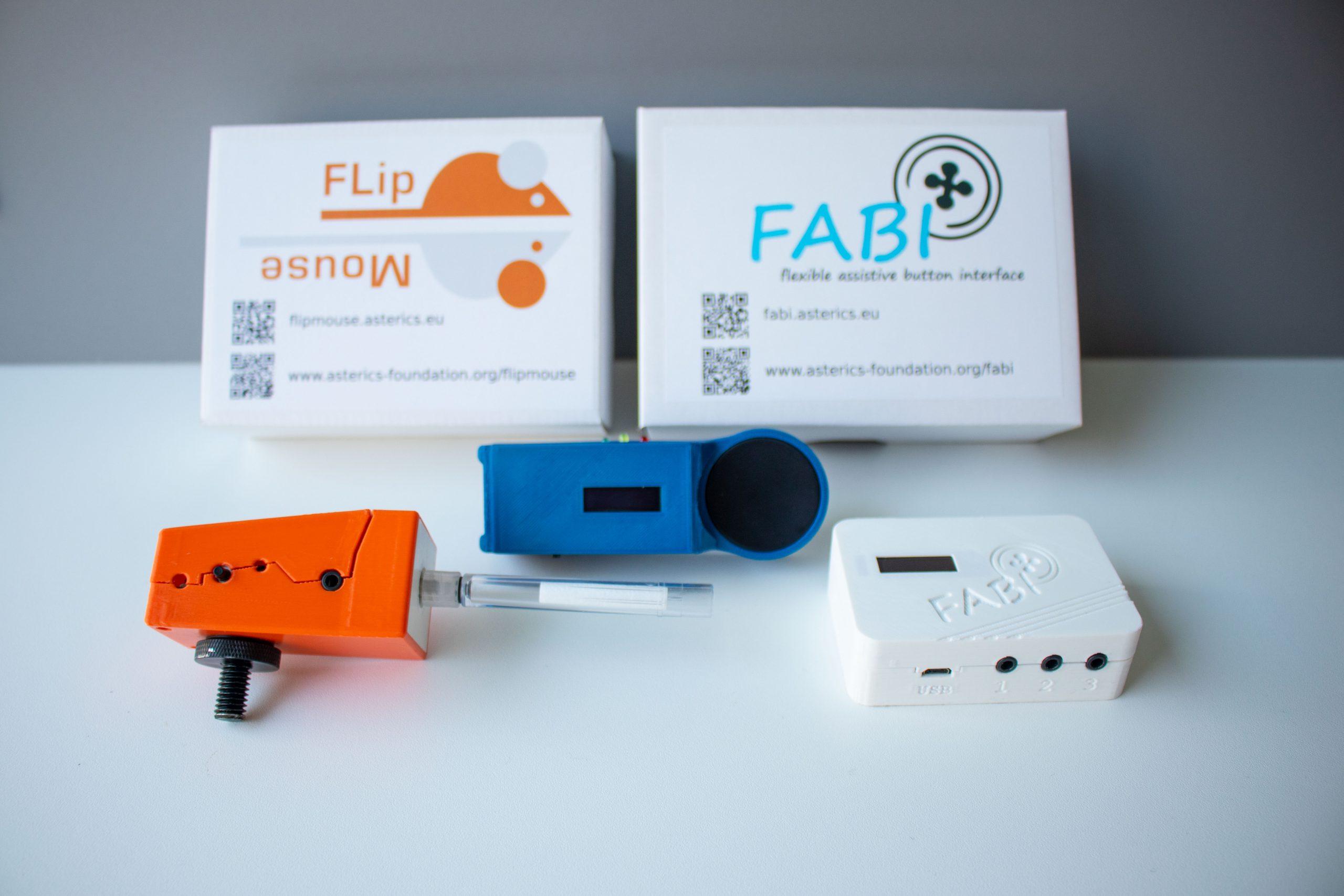
20 June, 2023
UAS Technikum Wien develops assistive technologies as open source solutions for people with limited motor skills.
At the Department Electronic Engineering of the FH Technikum Wien (competence field IoT and Electronics) technical solutions for people with limited mobility are researched. The development of these systems is funded, among others, by the City of Vienna (MA23) as part of the project “Knowledge Hub for Accessible Technologies” (WBT, project number 26-02). The dissemination takes place in cooperation with the non-profit association AsTeRICS Foundation. The solutions developed include hardware and software applications such as the FlipMouse mouth control, the FABI (Flexible Assistive Button Interface) button interface or the FlipPad – a capacitive touchpad with special functions for environmental control. These devices are offered as kits and can be assembled by users or their caregivers.

The development and evaluation of the technical solutions was carried out at the FH Technikum Wien with the participation of people with disabilities in the course of several research projects. The projects aim at giving people with severe physical disabilities possibilities to control electronic devices and to gain more autonomy and independence in the use of digital technologies. For example, they can use the Internet, control their environment in the smart home, and play computer games or musical instruments. “This opens up many activities for people with disabilities so they can realize ideas, act out emotions and experience social participation. When our technologies enrich people’s daily lives, these are the best moments of our work,” says Christoph Veigl, project manager of the Knowledge Hub for Accessible Technologies and CEO of the AsTeRICS Foundation.
Currently, the knowledge hub team also includes Benjamin Aigner and Benjamin Klaus (both Department Electronic Engineering), Agnes Scheibenreif (Department Life Science Engineering), and Patrick Link and Lukas Aichbauer (Department Computer Science). The knowledge hub thus combines the expertise from 3 departments of the FH Technikum Wien in an interdisciplinary project.
FABI and FlipPad: Control computer or environment by smallest finger movementsn
The FABI system replaces computer mouse or keyboard and enables complex interactions via one or more buttons (assistive switches). This allows step-by-step menu selection, control of the mouse cursor, input of letters and words, and pronunciation by a synthetic voice.
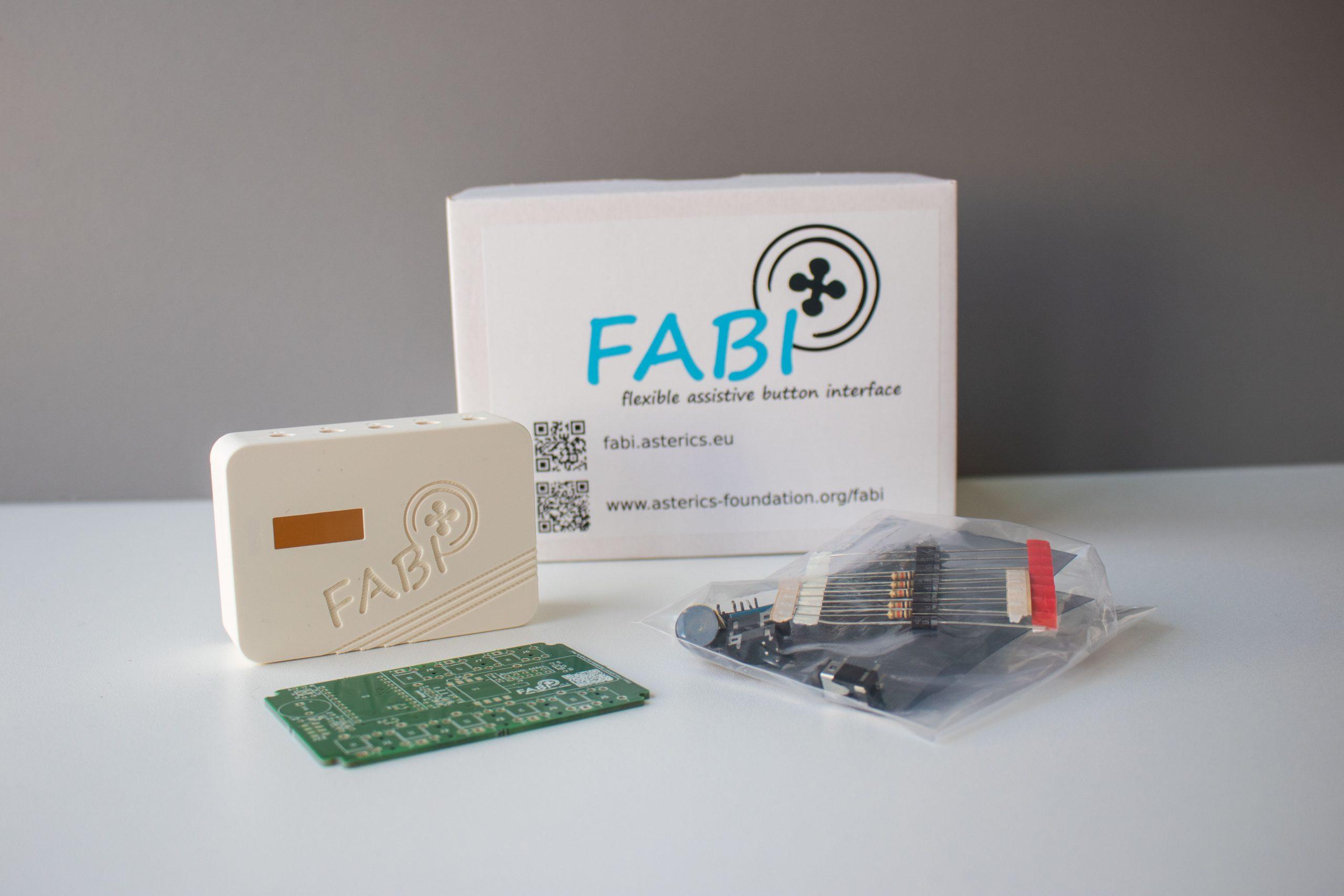
The FlipPad is also used for computer control as well as for using devices in the environment via an integrated infrared remote control. Here, a capacitive touchpad is used as the sensor, which measures the smallest finger movements. The FlipPad received the main prize at the “TOM Global Abraham Accords Open Innovation Challenge 2022”, a competition for the new development of assistive technologies, in which 80 teams from 40 international universities participated – a great success for the team of UAS Technikum Wien!
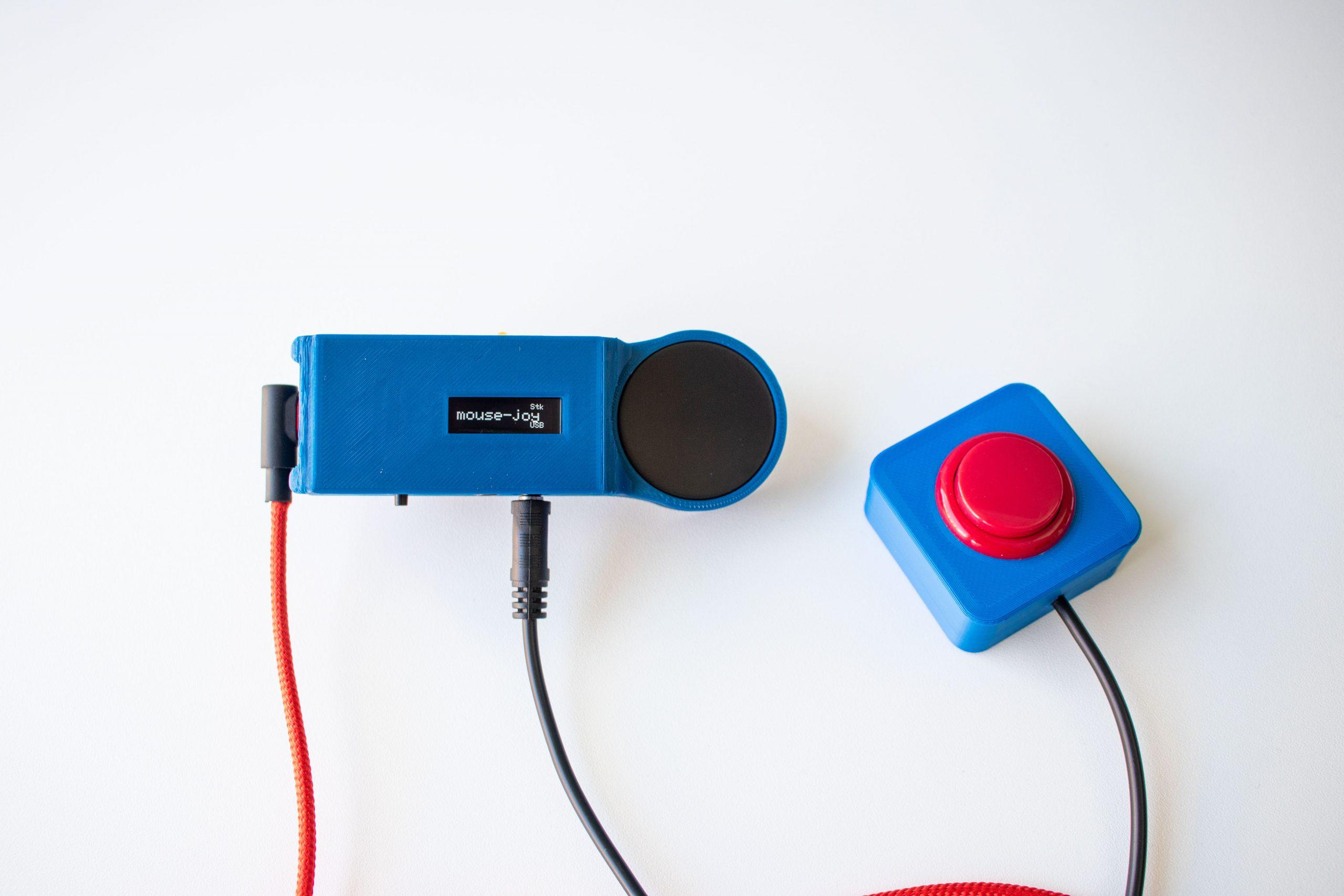
All these devices can be individually configured and combined depending on the application and the person. Available standard solutions are often not sensitive enough.
“Our goal is to also support people with severe motor impairments through individually adaptable input systems in such a way that they can use digital technologies without barriers. For example, if someone has restrictions in the area of the arms and hands, but movements of the mouth muscles are possible, the FlipMouse can be an ideal input system. We are making an offer to people who cannot find suitable technical support on the commercial market,” says Veigl.
FlipMouse: Click activity through pressure changes on the mouthpiece
The FlipMouse has a “zero-way joystick” that is very sensitive and evaluates subtle movements of the mouth or fingers. Even minimal forces such as lip movements are sufficient for use. Clicking activity can be achieved by changing pressure on the mouthpiece (by blowing or sucking lightly – such as these sounds: “sip/puff”) or by connecting external buttons. This allows precise control of mouse and keyboard, as well as wireless control of devices via infrared signals or Bluetooth.
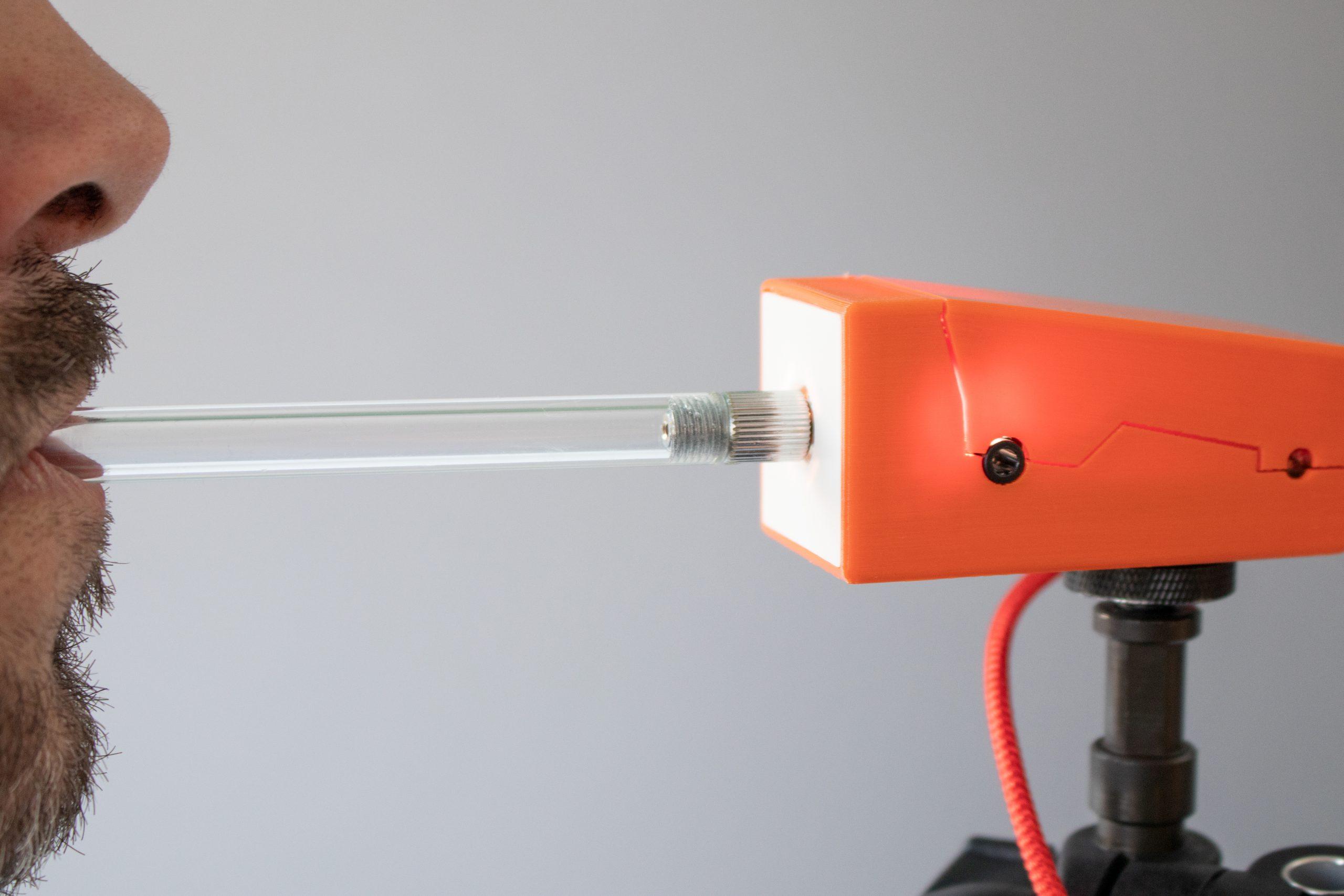
Graphical configuration software allows customization of the FlipMouse’s function and sensitivity. Several memory locations for different configurations are available on the device. This allows users to switch independently between using a computer, smartphone and TV:
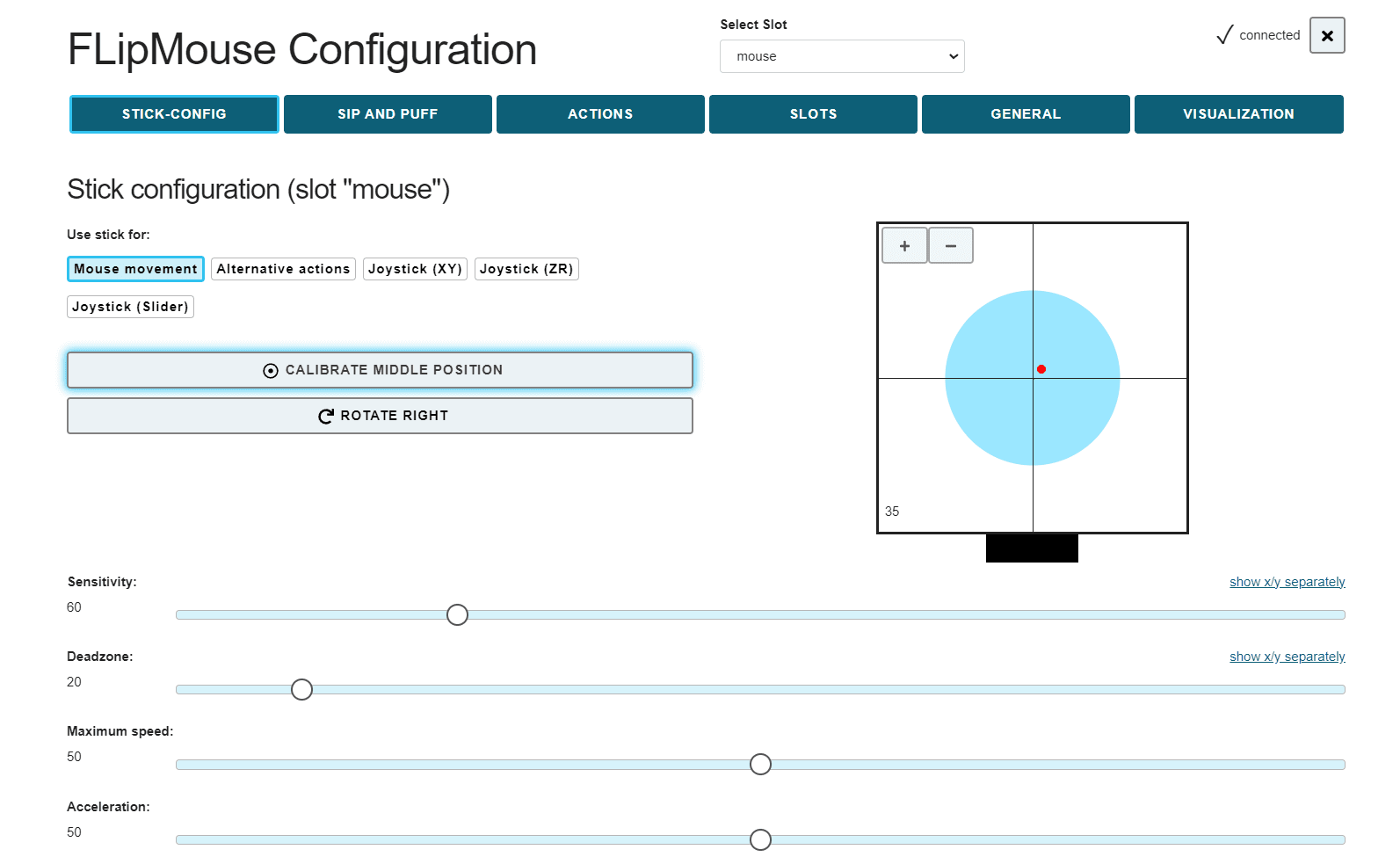
In the current version 3, the FlipMouse features a new sensor system (based on strain gauges and 24-bit analog-to-digital converters), further increasing sensitivity and stability to interference. The design has been optimized for manufacturing, so pre-assembled boards greatly simplify the assembly of the kit.
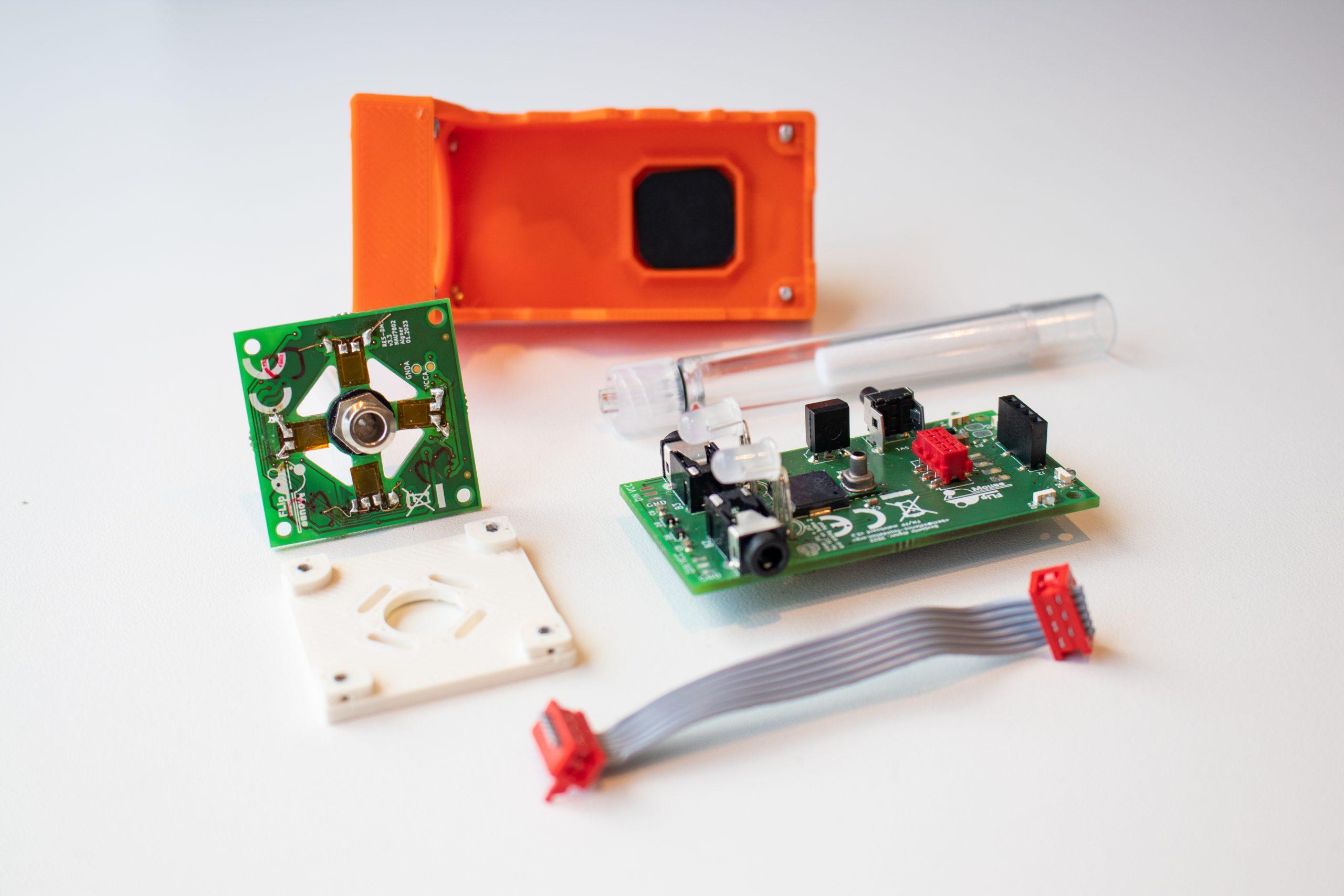
Kits can be assembled by customers themselves
The FlipMouse, the FlipPad and the FABI key interface are not offered as fully assembled devices, but as kits which can be ordered from the AsTeRICS Foundation. The foundation does not assume any liability for the assembled devices. This allows the systems to be offered at a fraction of the cost of “off-the-shelf” products. All design files for hardware and software are available on the open source platform GitHub and can be used and modified free of charge – subject to the licensing conditions. The AsTeRICS Foundation, in collaboration with the Wissensdrehscheibe für Barrierefreie Technologien (Accessible Technologies Knowledge Hub), shares information on the manufacturing and application of the technologies through workshops.
Knowledge hub with over 10 years of experience
The Knowledge Hub for Accessible Technologies has over ten years of applied research in the field of customizable assistive technologies and makes this knowledge available to partner organizations and individuals free of charge. The workshop program is booked, among others, by the FH Campus Wien (study programs Health Assisting Engineering and Occupational Therapy), the FH Joanneum Graz (study program Occupational Therapy) and the organization of occupational therapists (Ergo Austria). Furthermore, professional groups such as elementary teachers or therapists for basic support classes (school form for children and adolescents with multiple disabilities) take advantage of the knowledge hub. The workshop program will be expanded and applied in an international context as part of the Inclusion International project (MA23 project number 33-02), which runs until August 2025.
Users of the special input systems include people with dychene muscular dystrophy (DMD), spinal muscular atrophy (SMA), amyotrophic lateral sclerosis (ALS), cerebral palsy or paraplegia (especially tetraplegia). The technologies are used, among others, at the Haus der Barmherzigkeit (Vienna Seeböckgasse), the VKKJ Strebersdorf and the Krankenhaus Nord.
Smart Living Lab as an ideal environment for the application of assistive technologiese
With the “Smart Living Lab”, which was completed in May 2019, the FH Technikum Wien has a laboratory for the combination of Assistive Technologies with modern “Smart Home” infrastructure: an ideal environment for teaching as well as further research projects is available on more than 250m² of usable space – consisting of living area, wet room and bedroom, kitchen and seminar areas (all equipped with Smart Home functions). User tests and participatory developments involving people with disabilities can take place here, and the integration of new technologies can be planned and implemented.
Details / further links:
- Department Electronic Engineering (competence field IoT and Electronics) of UAS Technikum Wien,
Research focus Embedded & Cyber-Physical Systems - Homepage of the project Wissensdrehscheibe für Barrierefreie Technologien
- Homepage of the project Inclusion International
- More information about FlipMouse, FABI and FlipPad on the homepage of AsTeRICS-Foundation
- Video about the Smart Living Lab of UAS Technikum Wien
- Video about the FlipPad Projekt and winning AAOIC 2022